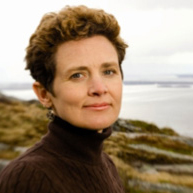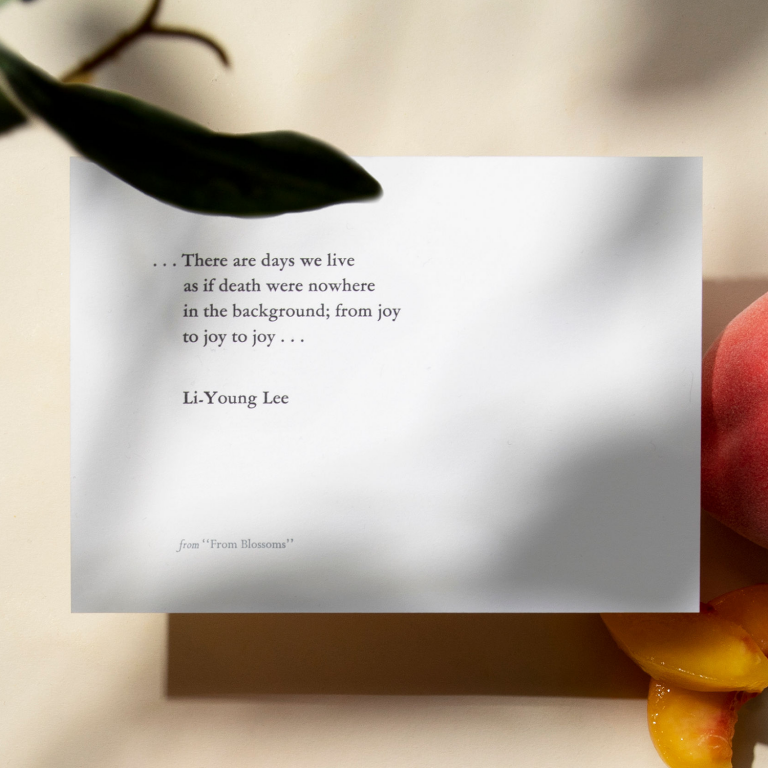Kate Braestrup
The Paradox of Suffering and Love
“The question isn’t whether we’re going to have to do hard, awful things. The question is whether we have to do them alone.” UU law enforcement chaplain Kate Braestrup tells the story of a police woman who embodies the both/and of love and new life, and crime and death.
Guest

Kate Braestrup is a Unitarian Universalist chaplain for the Maine Warden Service and the author of Here If You Need Me.
Transcript
Krista Tippett, host: In human life and in the history of faith, I think love has a quality of a bedrock reality we discover — adventurers, travelers, each of us, only fitfully apprehending its potential. I take some solace in the fact that I’m not alone in this intuition that the reality of evil, of injustice, of suffering notwithstanding, “at the center of this existence is a heart beating with love.” That’s how Desmond Tutu put it to me, with greater authority than mine from a life that has known extremes of human cruelty one to another.
I’m also inspired, and persuaded, by the Maine game warden chaplain Kate Braestrup. She became Unitarian Universalist in adulthood, and says that she, like some scientists I know, is “religious but not spiritual.” For her, this means that the idea that God is love has nothing to do with beliefs or transcendence, and everything to do with actions and people.
You’ve said that the Tibetan notion rings true for you, that whether we know it or not, we’re spending our whole lives preparing for our death. But a lot of the cases you deal with are people who are experiencing the death of people they love. And I don’t think any of us feel like we can prepare for that. Or that the universe even makes sense if we’re supposed to.
Kate Braestrup: Right. And that’s why it’s a good thing we don’t have to consciously prepare.
Ms. Tippett : And then there’s the story you tell of Christina, and Anna Love. She has an improbable name, this policewoman Anna Love, and you met her in a context in which you ponder the idea of a miracle in all its complexity.
Ms. Braestrup : Well, Christina was a young woman who was abducted and raped and murdered and left in the woods. And so the warden service was involved, along with many, many other agencies, in both recovering her body, and gathering and evaluating the evidence. It was a very painful experience for everybody involved. Obviously, for her family it was excruciating. It was one of those events that test our sense of what it means to live in Maine, of whether our children are safe or whether we are safe. What do you do about evil that swoops down completely at random? I suppose that’s where the issue of miracles comes in, that so many things had to happen in the right way, or the wrong way, depending on how you put it, for this particular young woman to meet this particular guy in the parking lot at 7:00 in the morning. That is as improbable as any miracle. And because of that, a miracle to me can’t just be something that was providential, that everything had to line up just right in order for it to happen. Bad things happen that way too. Really bad things happen that way too.
If I look at it from another perspective, and this is really the perspective I maintain, I don’t look for God or God’s work in magic or in tricks or in, you know, “this is what I want” and then I get it. I look for God’s work always in how people love each other, in just the acts of love that I see around me. This event tested that for me because, in general, I don’t get involved with a lot of sexual predators and murderers. I’m much more likely to be dealing with accidents or people who’ve done something stupid or they got drunk and did something stupid, but they weren’t actively malicious.
So to look for where love was in this situation, the very obvious place to look would be in the hearts and the hands of the guys who did their best to find her and to make things right for her and for her family. And with all the limitation in that.
Ms. Tippett : That they couldn’t, in fact, turn back time or make her be alive. Make that not have happened.
Ms. Braestrup : They couldn’t fix it. And the fact, actually, that they are willing to go and respond to these things when they can’t fix it is actually, in some ways, the most beautiful thing I see. But what’s amazing to me is that these police officers and the game wardens have actually deliberately set up their lives so that they’re going to have to go and do these things that are excruciatingly painful and that don’t fix or undo the harm and the evil that they see.
Ms. Tippett : And in this particular case it was a woman, a police officer named Anna Love.
Ms. Braestrup : Anna was the primary detective on the case. She’s this very serious young woman. I’ve known her actually for quite a long time now. And she’s very easy to picture as a detective. She’s very smart, you know, very serious, kind of a little pale heart-shaped face. And as a result of her investigating this, which meant combing through all of this information and trying to come up with plausible places to look for a suspect, they found the suspect. Then she had to interview him repeatedly and interview all the witnesses and interview him again and then go with him to the scene.
Ms. Tippett : And this is all within just three days, right? She really closed this case.
Ms. Braestrup : She did. In between all of this, she would duck into the lieutenant’s office with a breast pump, because she had a newborn baby at home and she was sending bottles of milk home to her husband, who’s also a police officer, so that he could give them to the baby. I thought, There’s something just gorgeous about that.
Ms. Tippett : You wrote, “If ours were a sensible culture, little girls would play with Anna Love action figures, badge in one hand, breast pump in the other.”
Ms. Braestrup : And kind of the perfect detective for this case somehow. There are these paradoxes that you can’t fix or make fit together. You can’t shave away the edges so that they match. You just have to let them sit there as separate things. On one hand you had this terrible event that was not right and not just and was cruel and on every level harmful and hurtful and terrible. On the other hand, you have all of these guys responding. All of these guys motivated by love. And one of them is Anna Love, who is a breast-feeding mother. And she’s the one who nails this guy. It’s not as if all of that fixes Christina’s death; it doesn’t. It’s just that they both exist in the same time and the same space, which, I guess, isn’t enough and is enough.
Ms. Tippett : You point out something that’s very simple, but really striking and unsettling in good ways and bad. That even when the miracle is of a life restored, that is always a temporary restoration. And you say that most of the time, perhaps, “a miracle can only be the resurrection of love beside the unchanged fact of death.”
Ms. Braestrup : This is a continual argument I have with Christianity. I always felt that it was answering a question I wasn’t asking. If you decide that the most important thing, the highest possible value, is life — breath in the body and walking around and eating sandwiches and whatever — then you’re lost. Then you’ve lost. Because we’re all going to die. So then you have to posit this whole other set of things that you can’t see and you can’t connect with. As I said, I’m a practical person. I want to be able to see it and I want to be able to do it.
So if I posit instead that the most important thing is love, then what I have is, yes, I have a world that’s full of suffering and evil and pain. And I have something to do. I have something to look for, and I have something to do. For me that works better.
I mean it pretty literally that God is, if nothing else — and that’s a big if — but if nothing else, God is that force that drives us to really see each other and to really behold each other and care for each other and respond to each other. And for me, that is actually enough. That cultivating it, that thinking about it, worshipping it, working towards it, taking care of it, nurturing it in myself, nurturing it in other people, that really is a life’s work right there, and it doesn’t have to be any bigger than that. God doesn’t have to be out in the next solar system over bashing asteroids together. It’s plenty, just the God that I work with.
Ms. Tippett : And then the question is, and this is something I know you grapple with all the time, how do you draw that line to this God of love from the child who’s gone missing, the beloved husband who just skated on lake ice that was too thin, the young woman who was raped and whose body is left in the woods?
Ms. Braestrup : Well, the first two are easier than the last one. The child is loved. The people who show up have no trouble at all loving that child enough to risk themselves to try to find her or him. And if you accept, as I do, that death is a given for all of us, then that becomes the thing to look for and to mark.
Ms. Tippett : The love and the care that surrounds.
Ms. Braestrup : Yes. If someone asks, “Where was God in this?” I’ll say, “God was in all the people that came to try to help, to try to find your child.” This helps people, it really does. You know, the question isn’t whether we’re going to have to do hard, awful things, because we are. We all are. The question is whether we have to do them alone.





